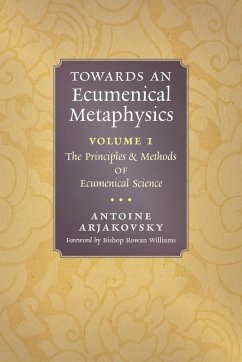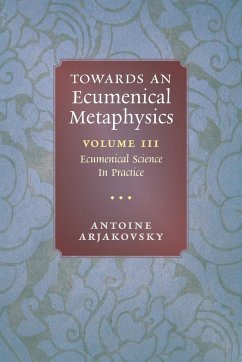For at least a century the ecumenical movement has fostered momentum at a global level towards rapprochement among Christians of all confessions. But neither ecclesiology nor religious studies is capable of taking the full measure of its depth and originality. The first aim of this work, then, is to illustrate the imperative need that this movement-which has explicitly defined itself as "ecumenical" rather than as "universal" or "catholic"-be given objective form through a science dedicated to it, which has not previously been the case. But the purpose to be served by ecumenical science will be broader than that of the ecumenical movement as usually understood. For instance, to speak of confessional reconciliation in Ireland is also to tackle the political, economic, and social roots of division and harm. Or again, to reflect on relations between Buddhists and Christians is also to study the convergences and divergences between them on topics as different as safeguarding the environment and genetic modification. That is why this three-volume work presents metaphysics as the discipline best fitted to inquiries into the notion of ecumenical consciousness in its full breadth, which has the further effect of rehabilitating metaphysics as a true science, while redefining metaphysics itself as an ecumenical discipline. In short, since the intrinsically universal character of metaphysics is the very essence of ecumenism, the principles governing metaphysics offer us a methodology for promoting interdenominational and interreligious dialogue.
Hinweis: Dieser Artikel kann nur an eine deutsche Lieferadresse ausgeliefert werden.
Hinweis: Dieser Artikel kann nur an eine deutsche Lieferadresse ausgeliefert werden.








